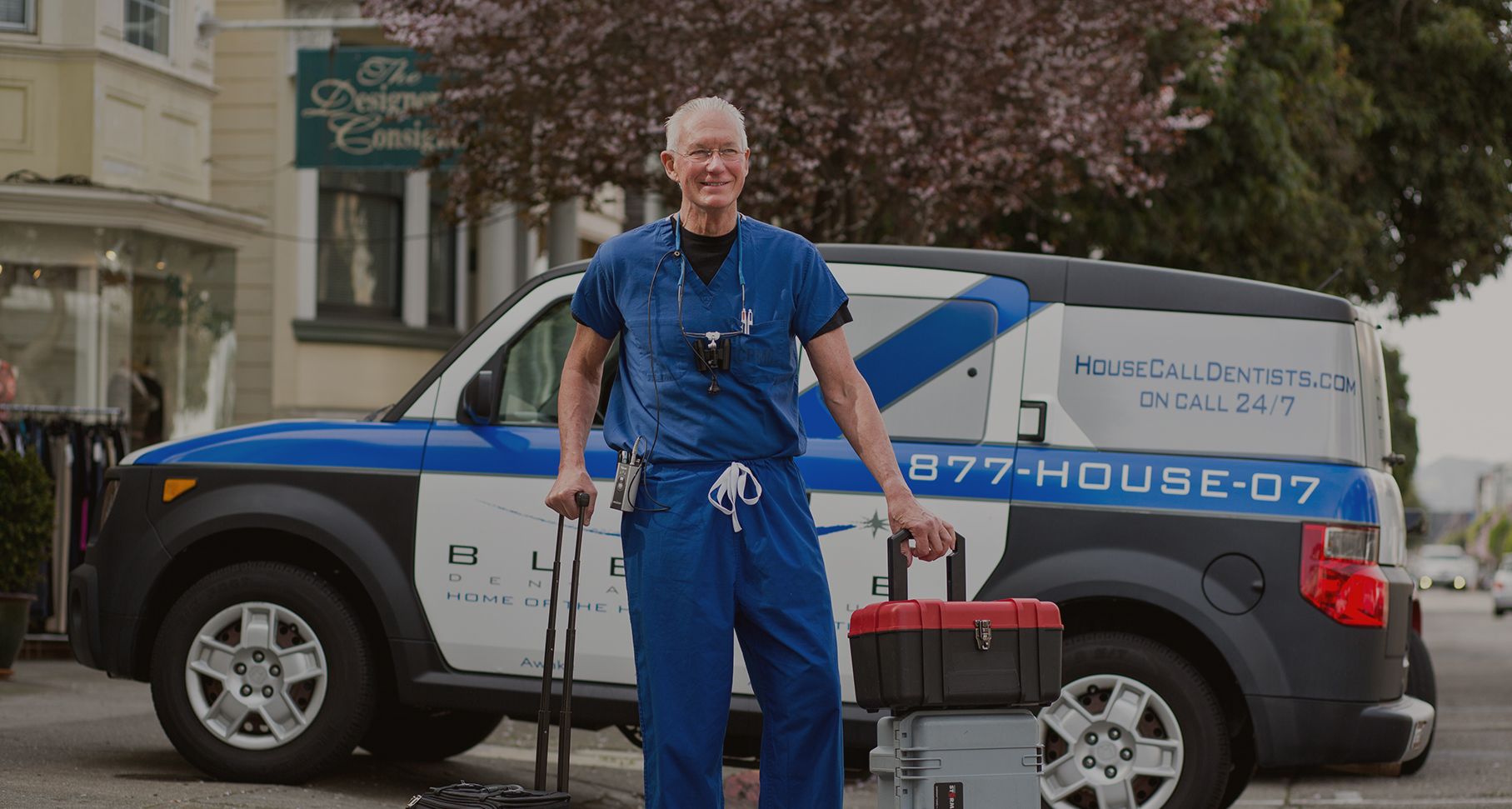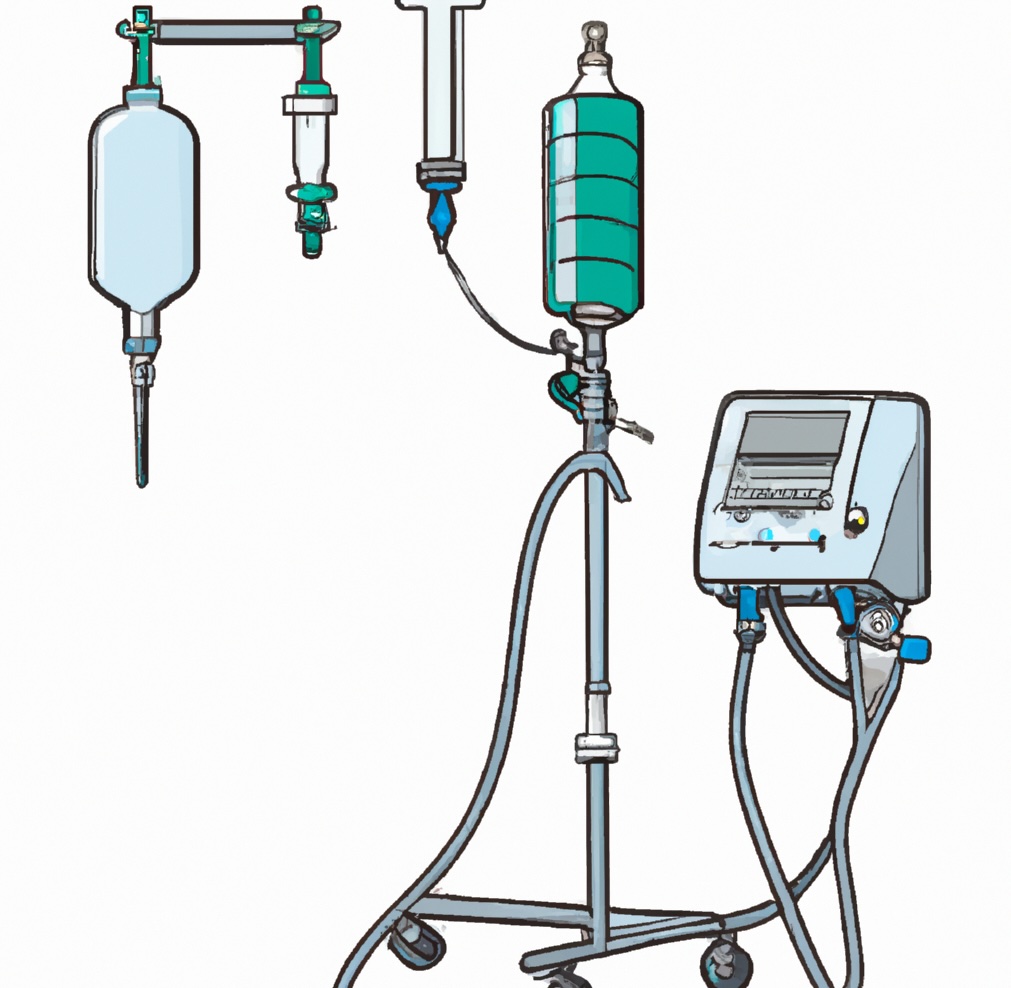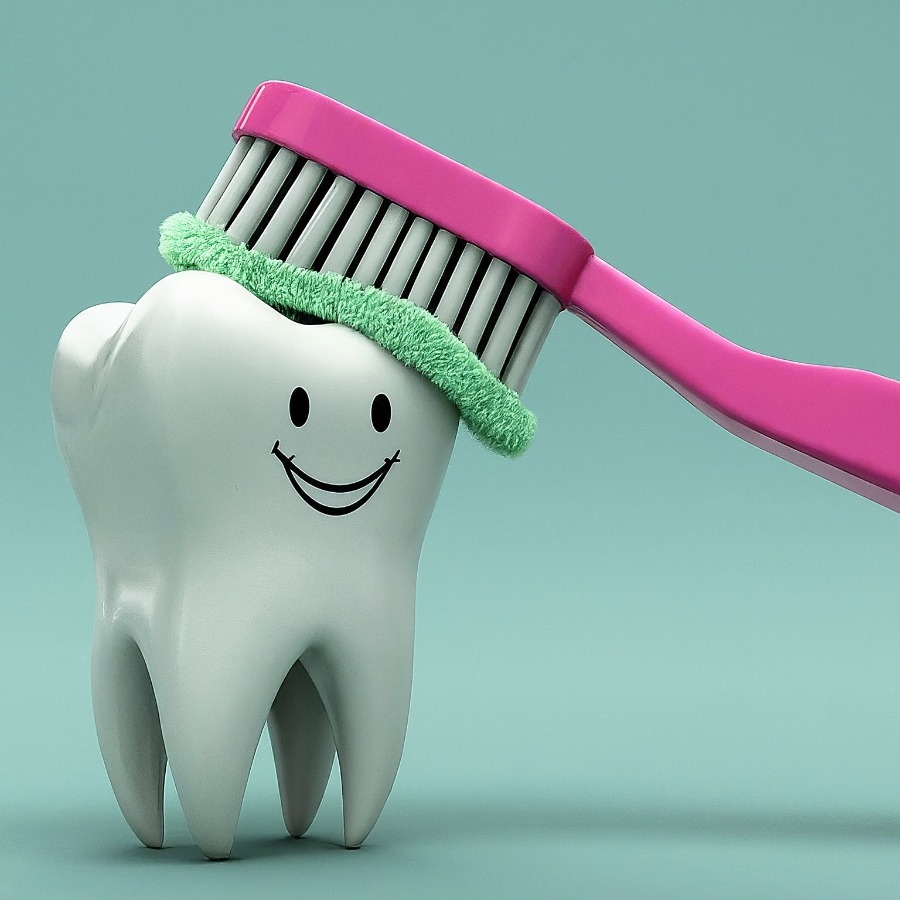Sedation Dentistry
Sedation Dentistry for Special Needs Patients
Sedation dentistry for special needs patients is not just a convenience but often a necessity. Traditional dentistry focuses on reactive care—addressing problems as they arise—with a “one size fits all” approach. However, people with unique circumstances, disabilities, or special needs are not represented in the “all” that this one size fits. Oral health is integral to overall well-being. We rely on our mouths to eat, speak, express emotion, and breathe. Yet, for an underserved portion of the population, accessing essential dental care feels less like routine maintenance and more like an insurmountable obstacle. At Blende Dental Group, we specialize in serving patients for whom the traditional dental experience presents unique and often overwhelming challenges—individuals with dental phobias, complex medical conditions, physical disabilities, and those who are neurodivergent or have other special needs.
Sedation Dentistry for Special Needs Patients: Calm, Comforting, Safe
As CalMatters points out, “There are tens of thousands of patients across the state whose disabilities—ranging from cognitive and physical disabilities like autism and cerebral palsy to complex health conditions like Alzheimer’s and Parkinson’s—require sedation during dental procedures, making basic dental care largely inaccessible.” The Blende Dental Group was founded to ensure that these patients have access to the care they need and deserve.
The typical dental office environment—with its bright lights, loud noises, unfamiliar smells, and close personal interactions—can be intensely overwhelming. For autistic individuals, those living with PTSD, or people with cognitive challenges, these elements constitute significant barriers, which can lead to delayed or avoided dental care. When that happens, minor issues escalate into major health problems.
We believe that everyone deserves access to high-quality dental care tailored to their individual needs. A cornerstone of our practice is providing safe and effective sedation dentistry for special needs patients. This approach is transformative; it’s about creating an environment of serenity and safety, enabling necessary dental procedures to be performed comfortably and without distress. Far beyond simple pain management, sedation dentistry for special needs patients empowers individuals by removing the obstacles that stand between them and optimal oral health.
Overcoming Challenges with Sedation Dentistry for Special Needs Patients
To appreciate the value of sedation dentistry for special needs patients, it’s important to understand the specific hurdles they face in standard dental settings. The term “special needs” encompasses a wide range of conditions, including neurodevelopmental differences like Autism Spectrum Disorder (ASD) and ADHD, cognitive impairments such as intellectual disabilities or dementia, severe anxiety disorders including PTSD, and physical disabilities that might affect cooperation. Special needs patients experience many difficulties in dental standard dental environments.
Intense Sensory Sensitivities
The dental clinic can become a sensory minefield for sensitive patients.
- Visual: Overly bright lighting and reflections off instruments.
- Auditory: The whine of drills, suction gurgles, equipment beeps, and other ambient noise.
- Olfactory: Pungent smells of disinfectants, materials like latex or bonding agents.
- Gustatory: Unpleasant or strong tastes from fluoride, anesthetics, or polishing compounds.
- Tactile: The feeling of instruments, water spray, vibrations, cotton rolls, or even the dental chair itself can be distressing. For many special needs patients, especially autistic individuals, this sensory onslaught can trigger significant anxiety, distress, leading to shutdown or meltdown responses, making treatment impossible without support like sedation.
Communication Difficulties
Challenges may arise in understanding complex dental explanations, following sequential instructions, or clearly expressing feelings of pain, fear, or discomfort. Misinterpreting non-verbal cues or struggling to articulate needs can create frustration and impede care. This highlights the need for approaches like sedation dentistry for special needs patients where implicit understanding isn’t solely relied upon.
Overwhelming Anxiety and Fear
Previous negative dental encounters, fear of the unknown, fear of pain, feeling a loss of control, or generalized anxiety are often magnified. For special needs patients with PTSD, specific elements in the dental office can act as triggers, potentially causing flashbacks or severe anxiety attacks. Sedation dentistry directly addresses this fear barrier.
Challenges with Stillness and Cooperation
Remaining still with an open mouth for necessary periods can be extremely difficult for special needs patients, including those with ADHD, sensory processing disorders, anxiety, or certain physical/cognitive conditions. Involuntary movements compromise safety and treatment quality, making sedation dentistry for special needs patients a vital safety measure.
Cognitive Understanding Barriers
Special needs patients with cognitive impairments might struggle to grasp the necessity of the treatment, understand the procedural steps, or cooperate effectively, leading to fear, confusion, or resistance.
Complex Medical Considerations
Often, special needs patients have co-occurring medical conditions. These require careful consideration during dental treatment planning, especially when considering sedation dentistry for special needs patients, necessitating specialized knowledge.
Traditional dental practices may lack the time, training, or resources to adequately manage these complexities. Consequently, essential dental care gets postponed, allowing dental diseases to progress, causing pain, infection, and negatively impacting systemic health and overall quality of life for special needs patients.
Benefits of Sedation Dentistry for Special Needs Patients
Sedation dentistry for special needs patients provides targeted solutions for distinct groups within this community.
Autistic Patients
ASD involves differences in communication, social interaction, and sensory processing. The dental environment poses unique challenges.
- Sensory Overload: Extreme sensitivity to lights, sounds, tastes, smells, and touch.
- Need for Predictability: Disruption of routine and unfamiliar settings cause significant anxiety.
- Communication Styles: Differences in processing information and expressing needs.
- High Anxiety: The convergence of sensory, communication, and predictability challenges often results in severe anxiety.
The Role of Sedation Dentistry for Autistic Patients
- Mitigates Sensory Input: Under appropriate sedation, overwhelming sensory stimuli are muted or bypassed entirely, preventing distress.
- Calms Anxiety: Sedation directly reduces physiological and psychological anxiety, fostering a calm state.
- Ensures Stillness: Enables safe stillness without internal struggle, crucial for precise dental work.
- Facilitates Comprehensive Care: Allows multiple treatments in one visit, minimizing stressful appointments. This approach using sedation dentistry for special needs patients respects the need for routine and efficiency.
Patients with PTSD
PTSD involves intrusive memories, avoidance behaviors, negative mood or thinking changes, and hyperarousal following trauma, which the dental setting can trigger.
- Feelings of Helplessness: Lying back, loss of control, and physical proximity can mirror traumatic experiences.
- Sensory Triggers: Sounds (drill), sensations (vibrations, pressure) can evoke traumatic memories.
- Feeling Confined: The dental chair itself can feel trapping.
- Hypervigilance: Heightened awareness and startle response due to close contact.
The Role of Sedation Dentistry for Patients with PTSD
- Prevents Re-traumatization: By inducing relaxation or unawareness, sedation prevents the conscious processing of triggering stimuli.
- Reduces Hyperarousal: Calms the nervous system, reducing hypervigilance and exaggerated startle responses.
- Creates Psychological Safety: Provides a mental buffer, often with amnesia, preventing new negative associations with dental care. This aspect of sedation dentistry for special needs patients is critical for those with trauma histories.
- Restores Control: Empowers patients by offering a way to receive care comfortably and safely, reducing anticipatory dread.
Patients with Cognitive Impairments
For people with intellectual disabilities, dementia, or brain injuries, a typical dental visit can present a host of challenges.
- Comprehension Difficulties: Trouble understanding the need for or steps involved in treatment.
- Communication Limits: Inability to express pain, fear, or needs effectively.
- Cooperation Issues: Resistance or restlessness due to fear, confusion, or lack of understanding.
- Safety During Treatment: Risk of injury from sudden movements.
The Role of Sedation Dentistry for Patients with Cognitive Impairments
- Maximizes Safety: Manages involuntary movements, ensuring procedures are performed safely for everyone.
- Enables Essential Treatment: Makes complex or routine dental work possible when cooperation is a barrier.
- Minimizes Distress: Reduces fear and confusion for the patient, creating a less traumatic experience. Utilizing sedation dentistry for special needs patients in this group often alleviates significant stress for caregivers as well.
- Improves Efficiency: Consolidates treatment into fewer visits, simplifying care management.
Many Options of Sedation Dentistry for Special Needs Patients
Sedation dentistry for special needs patients involves using medication to induce relaxation and manage anxiety during dental procedures. At Blende Dental Group, we carefully select the appropriate sedation level based on individual assessment.
- Minimal Sedation (Anxiolysis): Nitrous oxide or a mild oral sedative keeps you awake but relaxed. Suitable for mild anxiety.
- Moderate Sedation (Conscious Sedation): Oral or IV medication induces deeper relaxation. Patients can respond but may have little memory of the procedure. A frequent choice in sedation dentistry for special needs patients.
- Deep Sedation: Patients are nearly unconscious but can be roused. No memory of the procedure is common. Requires close monitoring.
- General Anesthesia (GA): Complete unconsciousness, administered and monitored by an anesthesiologist. Used for profound needs, extensive treatment, or specific medical reasons, ensuring the highest level of safety in sedation dentistry for special needs patients.
There are countless benefits associated with sedation dentistry for special needs patients.
- Neutralizing sensory overload
- Effectively managing severe anxiety and phobia
- Guaranteeing safety through cooperation and stillness
- Allowing for efficient, comprehensive dental treatment
- Preventing negative experiences and dental trauma
- Facilitating access to regular preventative oral care
Blende Dental Group: More Than Just Sedation Dentistry for Special Needs Patients
Sedation dentistry is more than just a convenience, it’s an integral aspect of care that’s woven into our broader philosophy of inclusive oral health at Blende Dental Group.
- Adapted Communication: Using clear language, visual aids, patience, and involving caregivers.
- Calming Environment: Modifying sensory aspects like lighting and sound, offering comfort aids.
- Careful Preparation: Offering familiarization visits, social stories, or visual schedules.
- Specialized Team: Our staff possesses the training, experience, and empathy essential for working with special needs patients.
- Individualized Planning: Tailoring every aspect of care, including the specific sedation dentistry approach, to the patient.
- Collaborative Care: Working with physicians, therapists, and support networks.
Sedation Dentistry for Special Needs Patients: A Proactive Approach to Care
Avoiding dental visits allows problems like cavities, gum disease, and infections to worsen, leading to pain, systemic health complications, nutritional difficulties, and reduced quality of life. Sedation dentistry enables proactive, preventative care, stopping problems before they become emergencies. It’s an investment in long-term health and comfort.
Your Partner for Sedation Dentistry for Special Needs Patients
At Blende Dental Group, we recognize the trust required when seeking dental care, particularly for special needs patients who may have had difficult prior experiences. We are committed to providing exceptional, compassionate sedation dentistry for special needs patients in San Francisco and New York. We create a supportive, non-judgmental atmosphere where every individual can receive the dental care they need safely and comfortably.
If you or a loved one requires specialized dental care due to neurodiversity, PTSD, cognitive impairment, severe anxiety, or other special needs, sedation dentistry might be the key to accessing that care.
Contact Blende Dental Group today to discuss how our expertise in sedation dentistry for special needs patients can help achieve and maintain a healthy smile. Let us be your partner in accessible, comfortable dental health.
Let's brighten
that smile
The when and where are up to you.














